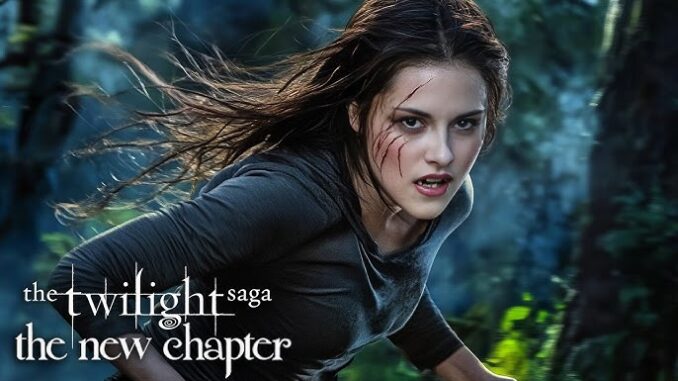
The whisper begins subtly, a phantom breeze through the digital pines of fan forums, before blossoming into a full-blown gale across social media. What if? The question hangs in the air, heavy with nostalgia, freighted with the ghosts of a thousand memes and first loves: What if Kristen Stewart and Robert Pattinson, the enigmatic Bella Swan and the brooding Edward Cullen, were to return to the Twilight universe? It’s a concept that feels less like a cinematic possibility and more like a cultural excavation, a journey back to a specific moment in time, both for the audience and for the actors themselves. To illustrate this speculative return is to explore not just a potential sequel, but a complex interplay of identity, legacy, and the insatiable hunger for revisited mythologies.
Imagine the announcement: a terse press release, perhaps a cryptic social media post from Lionsgate, setting the internet ablaze. The immediate ripple would be a cacophony of euphoria and skepticism. For a generation, Bella and Edward were more than just characters; they were archetypes, conduits for adolescent angst, forbidden desire, and the intoxicating allure of the supernatural. Their on-screen chemistry, amplified by their real-life romance, transcended the silver screen, turning them into tabloid darlings and symbols of a very public, very intense, first love. Their return, then, would be less about a simple acting gig and more about reclaiming a narrative, a reunion with the very roles that simultaneously launched and almost subsumed them.
For Kristen Stewart and Robert Pattinson, the return would be a fascinating, perhaps perilous, artistic choice. Both have meticulously carved out post-Twilight careers defined by their deliberate detachment from the blockbuster machine, gravitating towards independent cinema, challenging roles, and critical acclaim. Stewart, with her raw vulnerability and unconventional choices in films like Clouds of Sils Maria and Spencer, has shed the "awkward girl" persona, emerging as a magnetic, nuanced actress. Pattinson, too, has transformed, trading vampire glitter for gritty, transformative performances in Good Time, The Lighthouse, and ultimately donning the cowl as a brooding, psychologically complex Batman. To step back into the skins of Bella and Edward would be to acknowledge the long shadow of their past selves, to confront the ubiquitous imagery that still defines them for many. Would it be a liberation – a final, definitive embrace of their origins, on their own terms – or a regression, an undoing of years spent forging new identities? It would be a delicate dance, a negotiation with their own artistic legacies.
But what would this "return" entail for the Twilight universe itself? The obvious narrative progression points to Renesmee, the half-vampire, half-human daughter of Bella and Edward. The series concluded with her rapid growth, hinting at a future where her unique nature and burgeoning powers would inevitably draw new threats and alliances. A sequel could explore Renesmee’s coming-of-age, her struggle to define herself in a world caught between human frailty and immortal power. Bella and Edward would no longer be the angst-ridden protagonists but perhaps world-weary parents, their love solidified by decades, their powers honed by experience, acting as mentors and protectors to a new generation.
Such a continuation offers fertile ground for evolution. The original series, while beloved, faced criticism for certain problematic tropes and a sometimes-stilted dialogue. A contemporary return could address these issues, offering a more mature, nuanced exploration of power dynamics, consent, and the complexities of immortal life. The world-building, often hinted at but rarely fully explored, could be expanded. Imagine new covens with diverse origins, ancient vampire lore unearthed, or the re-emergence of forgotten magical beings. The Volturi, ever-present and menacing, could return with a new agenda, perhaps targeting Renesmee not just for her existence, but for her potential to shift the balance of power in the supernatural world.
However, the "what’s next" in the Twilight universe isn't solely about plot. It's about mood. The original films possessed a unique, almost sepia-toned melancholy, a blend of Pacific Northwest mist and gothic romance. Would a new iteration retain that atmospheric quality, or would it lean into the slicker, more action-oriented aesthetic of modern fantasy? The success of a return would lie in striking a delicate balance: honoring the cherished, almost sacred, elements of the original while infusing it with a maturity and depth that reflects the passage of time, both within the story and in the lives of the audience who grew up with it.
Ultimately, the thought of Kristen Stewart and Robert Pattinson returning to the Twilight universe is a potent daydream because it taps into something profoundly human: the yearning for a simpler time, the desire to revisit formative experiences, and the enduring power of stories that shaped us. It’s less about whether such a project will happen, and more about what the very contemplation of it reveals about our relationship with pop culture. It illustrates our perpetual fascination with evolution and nostalgia, our desire to see beloved characters grow, and perhaps, to see a little piece of our own past reflected in their enduring journey. Whether it manifests as a film, a series, or remains a tantalizing "what if," the question itself casts a spell, reminding us that some stories, like true love, are simply immortal.
